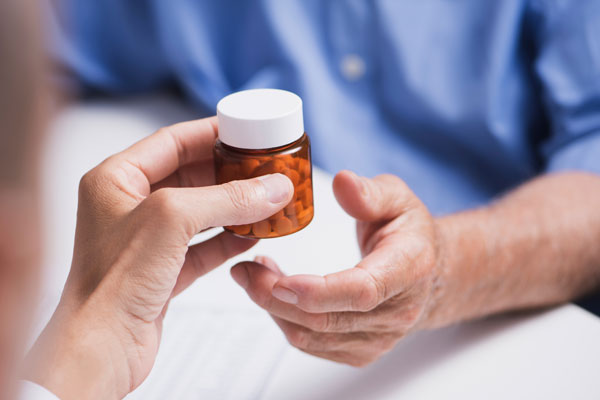Blood thinners (also called anticoagulants) are prescribed to improve blood flow, slow the growth of existing blood clots and prevent blood clots from forming. They are often prescribed for patients with an irregular heart rhythm, cardiovascular disease, a mechanical heart valve, deep vein thrombosis or blood-clotting disorders to reduce the risk of stroke or heart attack.
While some patients may only require blood thinners for a short period of time, others may need to take them for many years or indefinitely.
Regardless of how long you are taking blood thinners or what type of blood thinner you are prescribed, it is important that you understand how to safely use this medication.
We have outlined our top recommendations for patients being treated with blood thinners.
- Make sure to tell your doctor about any other medications (including over-the-counter drugs, vitamins or supplements) you are taking before you begin taking blood thinners.
- Speak to your doctor about your diet and lifestyle habits, especially if you drink alcohol. You may need to reduce or avoid alcohol consumption while taking blood thinners. Certain foods (such as those high in vitamin K and some fruit juices) can also interact with blood thinners.
- Take your medication as directed. Your dosage will be closely monitored to ensure you are on the right medication and amount, which may be adjusted after treatment begins.
- Tell any other medical providers (including dentists) that you are being treated with blood thinners prior to being prescribed any medications or undergoing any type of procedure.
- Watch for side effects. Blood thinners may make you feel nauseous, weak, dizzy, short of breath or fatigued. If you experience severe side effects, contact your doctor or pharmacist immediately.
- You may experience “nuisance bleeding” while taking blood thinners. This can include small cuts taking longer than normal to stop bleeding, frequent nosebleeds, bleeding gums or bruising. Manage any minor bleeds promptly, and keep first aid supplies handy in the event of a nuisance bleed. If bleeding won’t stop, seek medical attention. You should also contact your doctor if you experience unexplained bruising.
- Modify your activities. Take care to avoid wounds to the skin, falls or other types of injury. There is an increased risk of internal and external bleeding when taking blood thinners. Even if a fall or bump doesn’t hurt or leaves no visible mark, you still may have internal bleeding.
- Seek urgent medical care if you experience:
- Any type of impact or fall, especially if it involves your head.
- Severe headache; stomach, chest or back pain; vomiting or coughing up blood; shortness of breath; blood in the urine or stool; or severe bruising.
Blood thinners are a lifesaving medication for many patients at risk for heart attack, stroke or pulmonary embolism due to blood clots. When taken correctly, they can be safely used to avoid more serious health problems.
The team at Advanced Cardiovascular Specialists consists of North Louisiana’s leading experts in cardiovascular care. For more information or to schedule an appointment, please call our office at (318) 798-9400.

